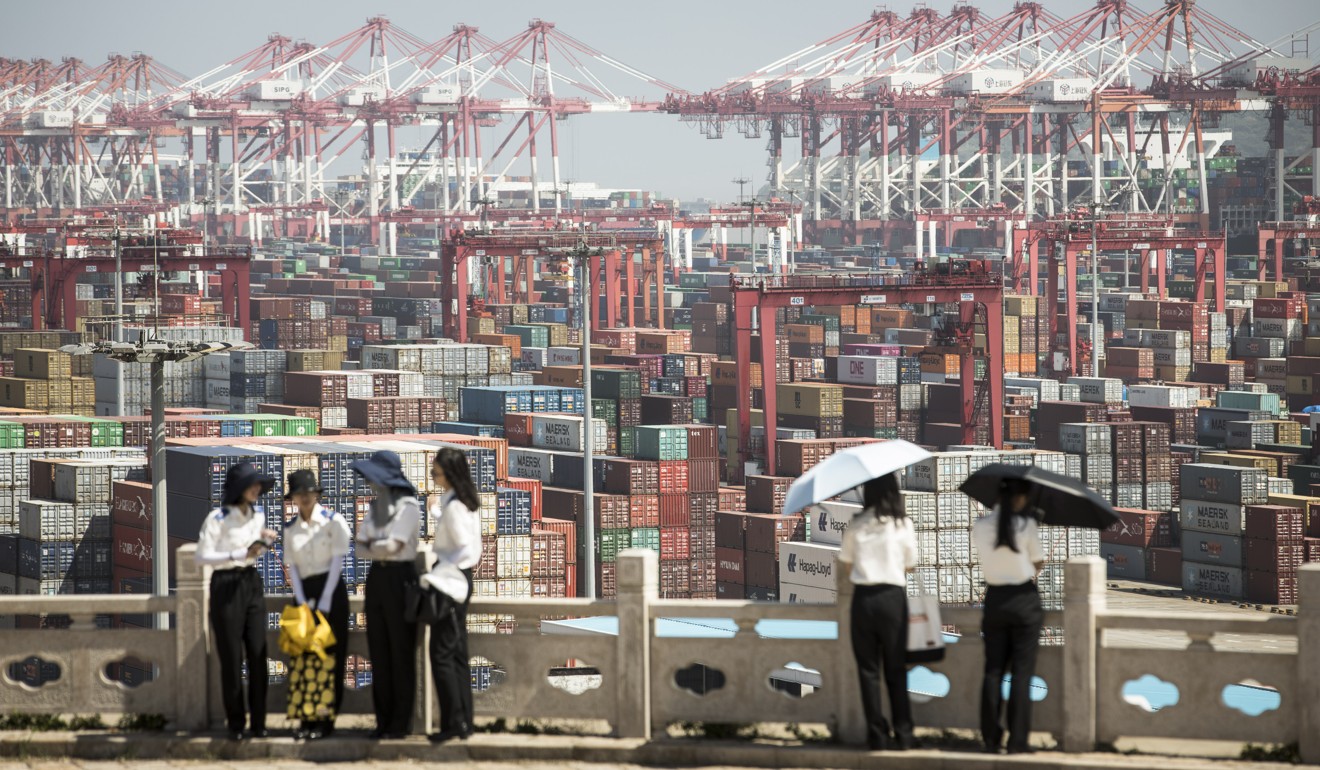
US trade gap complaints ‘perplexing’ but China’s door is still open for talks, Wang Yi says
Foreign minister repeats stance that Beijing doesn’t want a trade war
Washington’s complaints about trade imbalances between the US and China are “perplexing” but Beijing’s door remains open for talks, Chinese Foreign Minister Wang Yi said on Monday.
Wang, who is also a State Councillor, added that dialogue should be based on mutual respect while threats and pressure would be “counterproductive”, reiterating that Beijing did not want a trade war with Washington.
“China’s door of dialogue and negotiation remains open, but any dialogue must be based on equality, mutual respect and rules. Any threat or pressure by one side will only be counterproductive,” Wang said during a joint news conference with Britain’s Foreign Secretary Jeremy Hunt in Beijing.
Top UK envoy Jeremy Hunt makes awkward debut in China with ‘Japanese wife’ gaffe
Beijing and Washington have been locked in a trade dispute since they began applying 25 per cent tariffs on US$34 billion of each other’s goods on July 6, with duties on another US$16 billion of products in the pipeline. The US is working on a list of an additional US$200 billion of Chinese goods to be subject to 10 per cent tariffs from as early as September.

Washington has demanded Beijing act to buy more US products to reduce a US$350 billion trade surplus, and China agreed to significantly increase its imports from the US, especially agricultural and energy products, to avoid a trade war. But the deals collapsed in June after Washington resumed its tariff threats, which Beijing vowed to hit back against.
US is winning the trade war, and Chinese growth falling to 5 per cent will be the proof
“Regretfully, the US has not taken on its obligations nor has it tried to meet us halfway,” Wang said, adding that Beijing did not want to fight a trade war but it had to take countermeasures against Washington’s aggression.
So far there has been no sign that the deadlock will be broken any time soon. China’s commerce ministry last week said the two countries had not been in contact to restart negotiations on trade.
He Weiwen, a former economic and commercial counsellor at the Chinese consulate in New York and San Francisco, said now was not a good time to resume talks.
“At the moment, any trade talks would likely see either China having to make concessions or the negotiations would just collapse,” He said. “If the US wants to talk, it has to commit to lifting the tariffs. China won’t talk while the US is still waving sticks at it.”
Wang also said the root cause of the US trade deficit with China lies with Washington, giving the examples of a dominant US dollar, the country’s low savings ratio and high consumption, and its export controls on hi-tech products.
“Trade surplus or deficit, it’s not the standard to judge right from wrong,” Wang said, adding that the US argument about the trade gap was “perplexing”.
“It’s like someone buying 100 yuan worth of products in a supermarket then complaining he’s lost 100 yuan. How is that logical?”
China’s two big mistakes in trade war may lead the country into middle-income trap
Wang said about 60 per cent of China’s trade surplus with the US was created by foreign companies operating in China and that US firms had reaped “huge profits” in the country.
He also said Beijing and Washington, as members of the World Trade Organisation, should resolve the dispute under the WTO framework, adding that the US levying tariffs based on its own laws was “a typical unilateralism and economic hegemony, which is unlikely to be accepted by any sovereign state”.
Additional reporting by Reuters and Bloomberg

